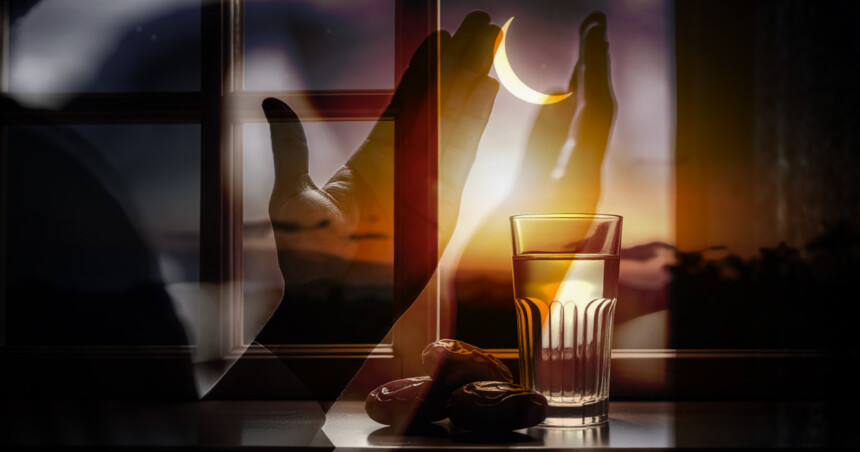The Day of ‘Arafah, the 9th of Dhul Hijjah, is the pinnacle of the Hajj pilgrimage. On this day, the pilgrims gather upon the plain of ‘Arafah in fulfilment of one of the three essential pillars of Hajj.
This day is, according to the majority of scholars, the greatest day of the Islamic year — distinguished by the descent of divine mercy and the closeness of the Creator to His servants.
The Prophet ﷺ said,
مَا مِنْ يَوْمٍ أَكْثَرَ مِنْ أَنْ يُعْتِقَ اللَّهُ فِيهِ عَبْدًا مِنَ النَّارِ مِنْ يَوْمِ عَرَفَةَ، وَإِنَّهُ لَيَدْنُو، ثُمَّ يُبَاهِي بِهِمُ الْمَلَائِكَةَ، فَيَقُولُ: مَا أَرَادَ هَؤُلَاءِ؟
There is no day on which Allah frees more people from the Hellfire than the Day of ‘Arafah. He draws near, then boasts about them to the Angels, saying: ‘What do these people seek?’” [1]
Allah descends to the lowest Heaven during the last third of every night, as He announces His willingness to forgive and answer du’ā. There is, however, only one day of the year where He does the same: the latter hours of the Day of ‘Arafah.
When we have favours to ask from people, they say “Come to me, I’ll help.” With Allah, He says, “Stay where you are. I will come to you.” None is more subtle, forbearing, and generous than Him, so start compiling your list of requests for those moments.
Certainty in the date and time
In Ramadan, we do not know the exact date of Laylat al-Qadr, the greatest night of the year.
As for the Day of ‘Arafah, the greatest day of the year, you have been given the exact date and hour! It does not make any sense that we fall short.
The Prophet ﷺ is narrated to have said,
مَا رُئِيَ الشَّيْطَانُ يَوْمًا هُوَ فِيهِ أَصْغَرُ وَلَا أَدْحَرُ وَلَا أَحْقَرُ وَلَا أَغْيَظُ مِنْهُ فِي يَوْمِ عَرَفَةَ وَمَا ذَاكَ إِلَّا لِمَا رَأَى مِنْ تَنَزُّلِ الرَّحْمَةِ وَتَجَاوُزِ اللَّهِ عَنْ الذُّنُوبِ الْعِظَامِ إِلَّا مَا أُرِيَ يَوْمَ بَدْرٍ قِيلَ وَمَا رَأَى يَوْمَ بَدْرٍ يَا رَسُولَ اللَّهِ قَالَ أَمَا إِنَّهُ قَدْ رَأَى جِبْرِيلَ يَزَعُ الْمَلَائِكَةَ
There is no day on which Shaytān is seen to be more humiliated, cast out, disgraced, and enraged than on the Day of ‘Arafah.
That is only because of what he sees of the descent of Allah’s mercy and His forgiveness of great sins. Except for what he saw on the Day of Badr.” [2]
It was asked,
And what did he see on the Day of Badr, O Messenger of Allah?” [2]
He (ﷺ) replied,
Indeed, he saw Jibrīl organising the Angels.” [2]
‘Atā ibn Abi Muslim said,
إن استطعت أن تخلو بنفسك عشية عرفة فافعل
If you are able to seclude yourself from all people during the latter hours of the Day of ‘Arafah, then do so.” [3]
The “latter hours” are in reference to those hours between ‘Asr (afternoon) and Maghrib (sunset).
So quickly free up your schedule at all costs, close your door, switch off your mobile phone, and connect with the Most High. If any day will be your game changer, it’s this.
Imam al-Awzā’ī said,
أدركت أقواماً كانوا يخبئون الحاجات ليوم عرفة ليسألوا الله بها
I met people who used to save their needs specifically for the Day of ‘Arafah, so they could ask Allah for them on that day.”
And one of our predecessors said,
والله ما دعوت دعوة يوم عرفة وما دار عليها الحَول إلا رأيتها مثل فَلق الصبح
I swear by Allah, in every du’ā that I have made during the Day of ‘Arafah, not even a year would pass by before it is answered, appearing in my life like the break of dawn!”
If you raced through the last ten nights of Ramadan, then here you are: offered another set of ten, beloved to your Creator, where the reward for righteous deeds is multiplied many times over.
Fasting in Dhul Hijjah
It is recommended to fast during the first eight days, and strongly recommended on the ninth of Dhul Hijjah — the Day of ‘Arafah.
Make a sincere intention from now that you will fast it, and honour that agreement with Allah.
The Messenger of Allah ﷺ was asked about fasting the Day of ‘Arafah, and he replied:
يُكَفِّرُ السَّنَةَ الْمَاضِيَةَ وَالْبَاقِيَةَ
It expiates the sins of the previous year and the coming year.” [4]
A single day’s fast, and you’re offered two full years of sins wiped clean!
Of course, fasting on the tenth day, the Day of Eid, is not permitted. It is a day of celebration, gratitude, and feasting — not abstinence. But outside of that, fast as much as you can during the first nine days. This was the practice of the Prophet ﷺ, as our mother Hafsa (radiy Allahu ‘anha) narrates.
As for the pilgrim engaged in Hajj, it is recommended to fast the first eight days of Dhul Hijjah if he is able, due to the general virtue of these days.
However, on the ninth day it is preferred, according to the majority of scholars, for the pilgrim not to fast, just as the Prophet ﷺ himself did not. This is to ensure he has full strength and clarity to dedicate the day to supplication, as it is the most critical day of the entire pilgrimage.
Abundant remembrance of Allah
The Prophet ﷺ said,
مَا مِنْ أَيَّامٍ أَعْظَمُ عِنْدَ اللَّهِ وَلَا أَحَبُّ إِلَيْهِ مِنْ الْعَمَلِ فِيهِنَّ مِنْ هَذِهِ الْأَيَّامِ الْعَشْرِ فَأَكْثِرُوا فِيهِنَّ مِنْ التَّهْلِيلِ وَالتَّكْبِيرِ وَالتَّحْمِيدِ
There are no days greater in the sight of Allah, nor days in which righteous deeds are more beloved to Him, than these ten days.
So increase in them your recitation of tahlīl (lā ilāha illa Allāh), takbīr (Allāhu akbar), and tahmīd (alhamdulillāh).” [5]
It was narrated by Nāfi’ from Ibn ‘Umar (may Allah be pleased with him) that he used to make takbīr during all the days of the ten (of Dhul Hijjah), whether he was on his bed or sitting in a gathering.
It was also narrated from ʿAṭāʾ ibn Abī Rabāh that he would make takbīr during the ten days in the streets and marketplaces.
And Jaʿfar ibn Sulaymān said,
رأيت ثابتاً البناني يقطع حديثه في أيام العشر ، يعني في مجلس الذكر ثم يقول : الله أكبر الله أكبر ، لا إله إلا الله ، والله أكبر الله أكبر ، ولله الحمد ، وقال : إنها أيام الذكر ، هكذا كان الناس يصنعون ، فقال جعفر : رأيت مالك بن دينار يفعل ذلك
I saw Thābit al-Bunnānī interrupt his own speech during the ten days — meaning during gatherings of remembrance — and say: ‘Allāhu akbar, Allāhu akbar, lā ilāha illa Allāh, wa-Allāhu akbar, Allāhu akbar, wa lillāhi al-hamd.’
Then he would say: ‘These are the days of remembrance. This is what people used to do.’”
Jaʿfar then said,
I saw Mālik ibn Dīnār doing the same.”
“Allāhu Akbar” is no ordinary dhikr. It’s the anthem of Eid — a day of izh-hār (bold proclamation). A day to stand tall in your Islam, to wear your faith with pride, and to let the world know that we are honoured with our Islam.
Twice a year, this takbīr travels through our homes and streets, as a divine reminder to rise above whatever seeks to weigh you down. Allāhu Akbar — greater than your sins, marital struggles, debts. Greater than your anxieties, enemies, and every force that stands in your way.
How desperately this message is needed today! Gaza is weeping under the weight of war, and the Ummah is bleeding in the shadow of superpowers. But let the world know: Allāhu Akbar… than the aircraft carriers, the media machines, and every alliance of oppression.
This is not new. Our father Ibrāhīm (ʿalayhi al-Salām) stood, believed, and migrated alone, and was even cast out by his own blood. Yet today, every tongue that breathes faith celebrates his name. Millions rush to trace their footsteps in his sacred land, eager to be linked to his legacy.
So when you say Allāhu Akbar this Eid, say it with the pride of Ibrāhīm, with Gaza as your backdrop, and the certainty that no force on Earth is greater than the One above it.
Honouring these days
There is a subtle and beautiful meaning that we are to recall during this special season: Allah Himself has honoured the first ten days of Dhul Hijjah, and He loves to see us do the same.
In other words, you may already be engaged in acts of goodness — giving charity, reciting the Qur’ān, teaching beneficial knowledge, supporting the causes of the Ummah, enjoining good and forbidding wrong, or simply being a source of khayr in the lives of others. But, as you do so, add a deeper layer to your intention:
That you are doing these acts as a form of honouring what Allah has declared to be honoured. That intention alone, holding in high regard what Allah holds in high regard, transforms the nature of your deeds and multiplies them.
Yes, you’re carrying out these actions anyway, but now you are doing them as a way of honouring what your Lord has honoured, and Allah does not allow such a mindset to go unrewarded.
As He says,
ذَٰلِكَ وَمَن يُعَظِّمْ شَعَـٰٓئِرَ ٱللَّهِ فَإِنَّهَا مِن تَقْوَى ٱلْقُلُوبِ
That is so. And whoever honours the symbols of Allah, it is certainly from the piety of hearts.” [6]
Everything that may draw you nearer to Allah
The Prophet ﷺ didn’t limit the reward to a specific type of action.
Instead, he used the phrase “al-‘Amal al-Sālih” (righteous deeds) in a way that includes every form of good deed.
This allows space for everyone to take part, each according to their capability and circumstances.
For this reason, the friends of Sa’īd ibn Jubayr said about him:
كان سعيد بن جبير إذا دخل العشر اجتهد اجتهاداً حتى ما يكاد يقدر عليه، ورُوي عنه أنه قال: لا تطفئوا سرجكم ليالي العشر
When the ten (nights of Dhul Hijjah) began, Sa’īd ibn Jubayr would exert himself in worship to an extent that was almost beyond his ability.
It was reported from him that he said: ‘Do not extinguish your lamps during the nights of the ten.’” [7]
Source: Islam21c
Notes
[1] Muslim; https://sunnah.com/muslim:1348
]2[ Muwatta Malik
]3[ Hilyat al-Awliyā
]4[ Muslim; https://sunnah.com/muslim:1162b
[5] Musnad Ahmad, 5,446
[6] al-Qur’ān, 22:32
[7] Latā’if al-Ma’ārif








Beautifully written and rich in practical insights as usual. May Allah bless our Sheikh